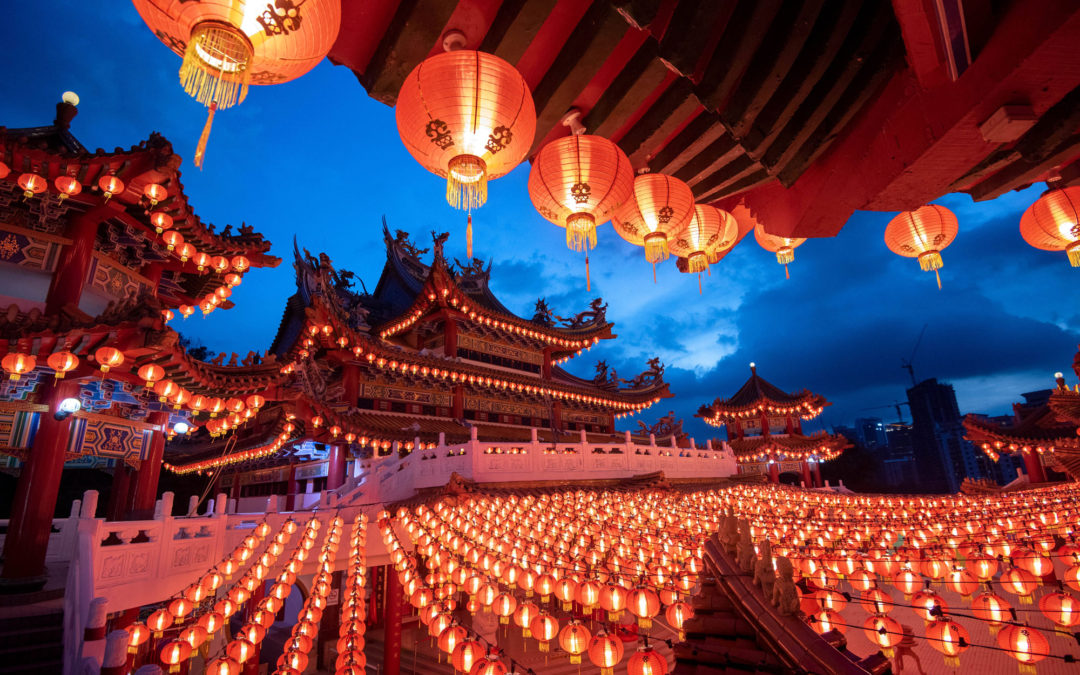As a time of joyful revelry, the Lunar New Year celebration is about to begin! This celebration lasts for fifteen days in many Asian countries and is a time of widespread festivity and fortune. Moreover, it is ultimately centered around removing bad luck and welcoming all that is new and prosperous.
But why is the New Year celebrated one month later in Asian countries than in the U.S.? While the U.S. uses the solar calendar to mark years, days, and time, some Asian countries use the lunar calendar instead. Unlike the solar calendar, the lunar calendar is based on the monthly cycles of the moon’s phases, or lunations, hence the difference in time. The Lunar New Year falls on the second new moon after the winter solstice, which happens to be around late January or early February.
This year’s Lunar New Year celebration marks the Year of the Dragon. Such classification is based on the Chinese zodiac, a traditional scheme based on the Chinese calendar that assigns an animal and its attributes in a repeating twelve-year cycle. The animals include the rat, ox, tiger, rabbit, dragon, snake, horse, goat, monkey, rooster, dog, and pig. Since the last Year of the Dragon was 2012, a full cycle of 12 years proceeded to 2024.
The celebration of the Lunar New Year consists of many different cultural traditions and customs. Red is a widespread color during this festival because it symbolizes prosperity, vitality, and luck; the color is also used as protection to ward off evil spirits. One notable custom during this time is the giving and receiving of red envelopes which contain sums of money. These envelopes are given as emblems of good luck and protection against evil ghosts and spirits. According to traditional customs, these envelopes are to be received and given with both hands and should never be opened in the presence of the gift-giver.
The sum of money given is also a factor to consider. According to CNN, “Numerology is particularly important in Chinese culture. For example, eight sounds like ‘prosperity’ in Mandarin, and six sounds like ‘untroubled’, which is why they’re both good figures to include.” However, “the number four should be avoided at all costs as it sounds like ‘death’ in Mandarin” (CNN).
Another tradition during Lunar New Year is the release of paper lanterns into the night sky. The lanterns are traditionally made from paper or silk wrapped around a bamboo base and lit with candles. Since the holiday is a celebration of the new, the lanterns can symbolize people letting go of their past selves in order to attain new achievements and experiences for a brighter future. Paper cutting is a form of delicate art to celebrate the Lunar New Year as well. Using red-colored paper and scissors, the paper is cut into multiple different shapes that represent good luck and fortune.
In addition to traditional customs, a multitude of good food is also prepared for the Lunar New Year. Dumplings are the traditional food of the celebration as they are not only a versatile food, but also a symbol of comfort, hope, and prosperity. Spring rolls, pastries filled with noodles, carrots, and other vegetables, are also eaten as they are meant to symbolize bars of gold that bring wealth for years to come. Other notable foods include whole fish, noodles, and cured meats.
The Asian Affinity Club and Culture Club had a successful meeting this past Thursday celebrating the Lunar New Year. Christina Chen, president of the Asian Affinity Club, said, “We shared a presentation on what the holiday is, what some traditions/customs are, and learned about the significance of red envelopes. We also had some snacks that members could divulge in: yakgwa, chocopie, rice crackers, seaweed snacks, and tangerines. At the end of the meeting, we distributed red envelopes and one lucky winner won a $5 Amazon gift card!”
Ultimately, the Lunar New Year is a time of celebration, festivity, and fun to welcome newfound prosperity, luck, and happiness at the arrival of the new year. The traditions of the Lunar New Year will never get old as the holiday brings joy and jubilation to all who celebrate.













